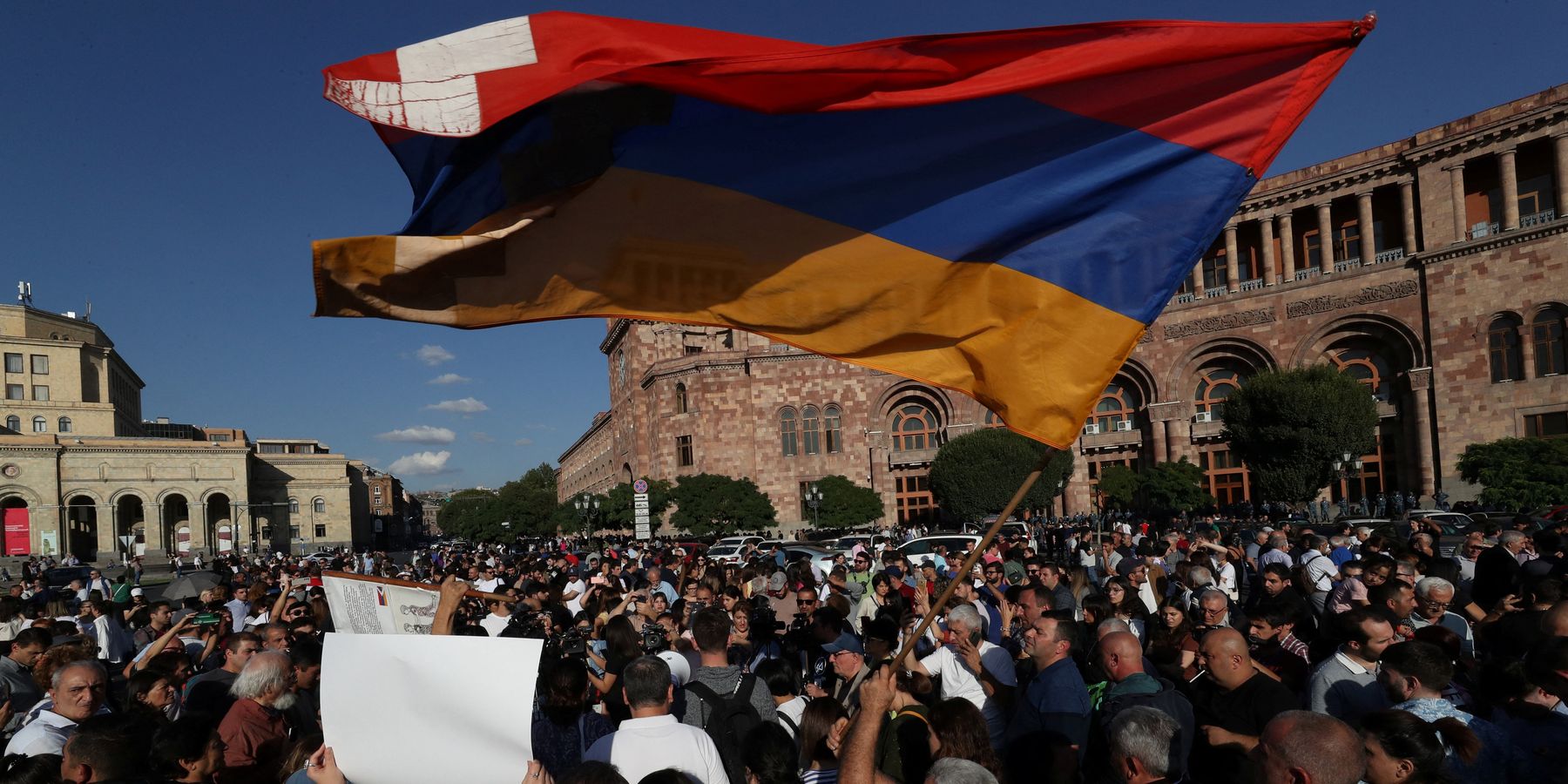Update 9/19, 2 p.m.: A United States official said that U.S. Secretary of State Antony Blinken will hold urgent talks in the next 24 hours with all sides to end the “egregious” operation by Azerbaijan. A press statement by Blinken called "for an immediate end to hostilities and for respectful dialogue between Baku and representatives of the population of Nagorno-Karabakh."
It appears that Azerbaijan has decided to finish off by force what remains of the ethnic Armenian population in the disputed region of Nagorno-Karabakh; and judging by the response of the international community to Azerbaijani moves in recent years, nobody appears willing to do much to prevent it.
In the early afternoon of September 19, the Azerbaijani military launched a “local anti-terrorist” operation against the disputed territory of Nagorno-Karabakh to “...ultimately restore the constitutional order of the Republic of Azerbaijan.” The move follows their disputed claims that mines “planted by the reconnaissance-subversion groups of Armenia’s armed forces” blew up civilian and military vehicles, resulting in six dead.
This development comes after weeks of anticipation of such an attack given Azerbaijani troop movements near the territory of Nagorno-Karabakh, the increased airborne deliveries from Israel which supplies Azerbaijan with a large proportion of its armaments, and counter-preparations by the ethnic Armenian forces amidst an over nine-month long blockade of the Lachin Corridor.
The Azerbaijani Ministry of Defense statement claimed that “the civilian population and civilian infrastructure facilities are not targeted. Only legitimate military targets are being incapacitated.” However, reports from on the ground in the de facto capital of Stepanakert show shelling and civilian casualties.
Since the Moscow-brokered ceasefire that ended the Second Nagorno-Karabakh War in 2020 and brought Russian peacekeepers to the region, tensions have been escalating as Baku has sought to fully assert its control over the long-disputed territory. At first, the peacekeepers were generally able to protect what remained of Armenian Nagorno-Karabakh after the successful Azerbaijani 2020 assault. However, since the Russian invasion of Ukraine and the huge commitment and losses of Russian forces there, Russia’s military ability to intervene in Nagorno-Karabakh seems largely to have vanished.
Azerbaijan for its part had repeatedly and unequivocally stated that there is no need for outside intervention in its domestic affairs as Yerevan, Brussels, and Washington increased their calls for the future guarantee of the rights and security of Karabakh Armenians under Azerbaijani rule.
Armenian Prime Minister Pashinyan has said that Azerbaijan wants to involve Armenia into a large-scale war but that Armenia is not and will not become involved in the conflict over Nagorno-Karabakh.
Charles Michel, President of the European Council, said on X, formerly Twitter, that the “Military actions of Azerbaijan must be immediately halted to allow for a genuine dialogue between Baku and Karabakh Armenians.” The office of EU foreign policy chief Josep Borrell issued a statement condemning the military escalation.
Russia has urged the conflicting parties to “stop the bloodshed, immediately cease hostilities and return to the path of a political and diplomatic settlement.” Moscow also rejected Baku’s claim that they had informed the Russian side in advance of the assault.
The U.S. still has yet to make any statement on the situation. However, in comments to the Senate Foreign Relations Committee last week, Yuri Kim, Acting Assistant Secretary of State for European Affairs made clear that the U.S. condemns the use of force and will not accept any moves “to ethnically cleanse or commit other atrocities against the Armenian population of Nagorno-Karabakh.”
What the fate of the Armenians of Nagorno-Karabakh illustrates with tragic force is that while for a generation the United States and its NATO allies have been implacably hostile to Russia’s presence in the South Caucasus, they have neither the ability nor the will to replace Russia — which is now bogged down in Ukraine — as a security provider in the region, and to resolve or contain its ethnic disputes. Therefore, for Armenians, the tragedy of the war in Ukraine and its repercussions are being felt directly in the South Caucasus.
Editor's Note: Artin Dersimonian was an intern at the Armenian Embassy in Washington in 2018. The Terjenian-Thomas Assembly Internship Program at the Armenian Assembly — which is mentioned in the QI brief on which this article is based — facilitated Dersimonian's internship with the embassy.
- Azerbaijan exploiting Ukraine distraction to press advantage in Armenian conflict ›
- Can the US work with Russia in Nagorno-Karabakh? ›
















